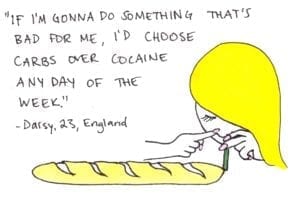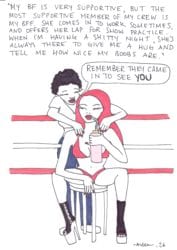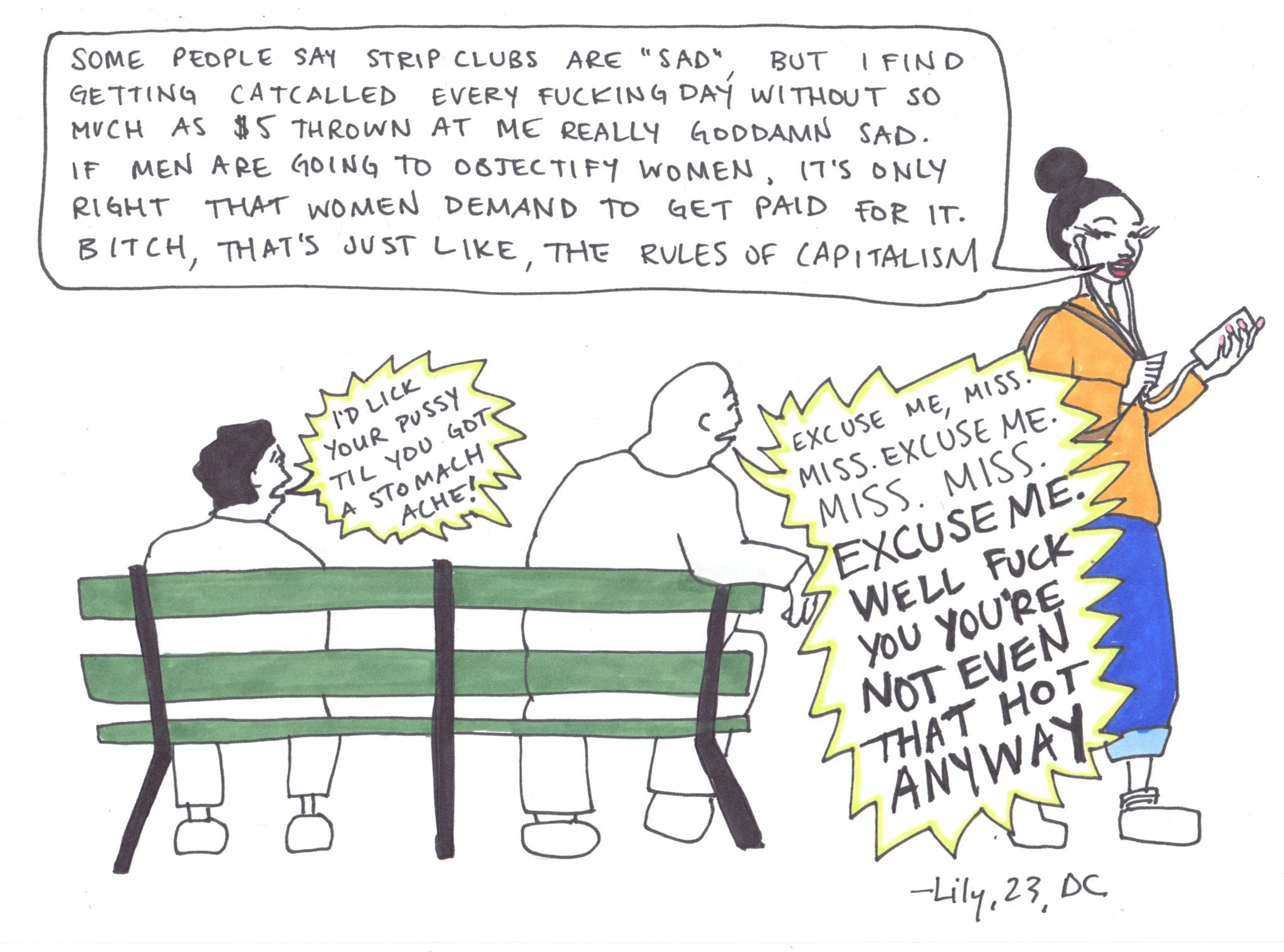Jacqueline Frances, aka Jacq the Stripper, is a Canadian stripper, activist, illustrator and writer, based in New York. With her posts shared regularly and widely throughout the stripping community, there are few dancers that aren’t aware of her work. Her first book, The Beaver Show, is her memoirs about her early years dancing worldwide. Her latest book, Striptastic, is a collection of illustrations, musings, quotes and all things stripper. She has gained the respect of her fellow lap dancers with her candid, true to life portrayals of the realities of the job and the attitudes and stigma dancer’s face. We had a chat about what inspires her, motivates her and how other girls can get involved. This is what she had to say…
 Strip-Magazine: As a very vocal and out spokesperson for the industry, you are,
Strip-Magazine: As a very vocal and out spokesperson for the industry, you are,
without a shadow of a doubt, humanising stripping and the women who do it. Was there a moment that instigated this?
Jacqueline Frances aka Jacq the Stripper: I’ve always been a storyteller, so when I started stripping I couldn’t not talk about it. My experience from the get-go was so different from the mainstream narrative about sex work (which was very sad, dangerous and unhealthy), so that made me especially compelled to share my story. It has, for the most part been educational, empowering and hilarious.
S-M: Of course, sex sells and we make our money from this. However, you have managed to amass a large following on social media with hardly a booty shot in sight! Was this a conscious choice in line with your activism?
J.F.: Ha, not really. My selfie game kind of sucks. I love being sexy for strangers in real life, and sometimes I like sexy photos, but that’s not really what I’m about. I get so much hey-look-at-me-I’m-hot validation (which I totally need, I am not above this) at the club that I don’t really search for it online. I’d rather make people laugh.
S-M: It’s a no-brainer on why dancers love your drawings. They’re always really on point and tap into the realities of the job. Would you say the medium that you use, i.e. art and illustration, has contributed to people outside of the industry being able to visualise what dancers deal with on, pretty much, a daily basis?
J.F.: I think in my attempt to humanize sex work, the drawings have also de-personalized the narrative. Illustration makes the story less about me and more about any woman who has done the work. I think other strippers see themselves in a line drawing more than they ever could in my selfie, which is what makes it more relatable. A friend of mine the other day said to me, “your illustrations are so relatable to anyone living under capitalism,” which I really appreciated.
S-M: Have you noticed a change in people’s attitudes towards you from outside the industry as your notoriety has increased and more mainstream media has picked up on your work?
J. F.: Not really. If anything the people with whom I surround myself with are proud of my success. However, I can’t say that there has been a change. The coolest thing now is that sometimes when I go into a strip club dancers come up to me and tell me how much they appreciate my work, which is truly a dream come true. The only demographic of opinions I really care about is the sex worker community. The civilian stoke is an added bonus.
 S-M: Striptastic, your latest project, was funded by a Kickstarter campaign. How did you feel when you managed to smash your target with a few days to spare and was there anything you learnt from the experience?
S-M: Striptastic, your latest project, was funded by a Kickstarter campaign. How did you feel when you managed to smash your target with a few days to spare and was there anything you learnt from the experience?
J.F.: This was my second Kickstarter campaign, so I’m familiar with the stress and excitement of crowdsourcing a project about which I’m truly passionate. The moment you reach your goal is really just the beginning. But it’s fucking rad when so many people want to support you. I just sent out 600 books last weekend and I can’t wait till they get into people’s hands. They’ve been so patient.
S-M: Finally, what advice would you give to girls that are inspired by how you do things and want to make their own mark on dancing and the attitudes surrounding it?
J.F.: That’s a great question. I want to encourage women to come out. The more of us who do, the less of an issue it is. However, I understand that it still is a very real issue. It’s dangerous to come out for a number of reasons (family, future career aspirations, social stigma).
I respect women who do the work and choose to stay in the closet about it. But, if you’re in a place where you want to be out about it, I’d say that we need you. I’ll support you in any way I can. Also (and perhaps most importantly), I feel like I need to mention that 99% of my audience is women. This may not be the case for everyone, but I can say with certainty that when I’m not actually stripping but talking about stripping, writing about it, drawing it… whatever I’m selling is almost always purchased and supported by other women.
My days of pandering to men are dwindling, and it’s only something I ever have to do when I’m literally inside the club. So if you want to come out, don’t worry about making men happy. It’s a waste of precious effort, time, and integrity. You’ve pandered to patriarchy long enough. Speak your fucking truth and leave the man-pleasing in your wake. In my experience, unless you’re literally sitting on their dick, men don’t want to pay you. Don’t squander your artistic vision with the hopes that a john might buy it. He won’t. But a woman who’s been where you are will. Sex worker or not, we’ve allllllllll been there.
You can order The Beaver Show and Striptastic on Amazon or Jacq the Stripper’s website here, and follow her Instagram and Twitter: @Jacqthestripper.
Author: Rochelle
I am a UK based, owner of an international stripper recruitment agency called Showgirls International. I have over 10 years club experience worldwide. When I think I have seen it all, something proves me wrong and that is what keeps me on my toes and fascinated with the industry!

